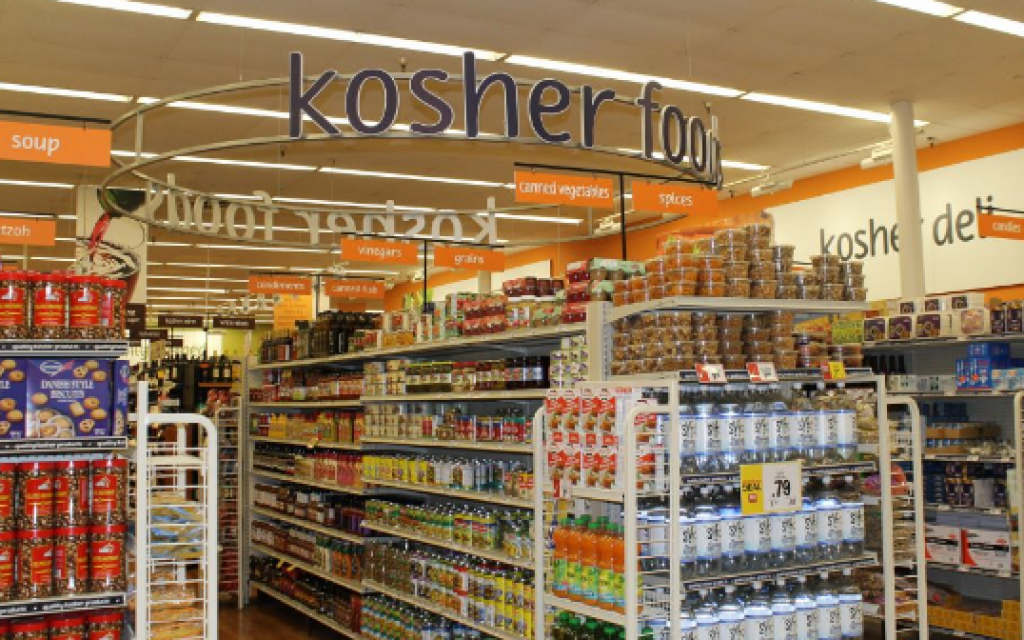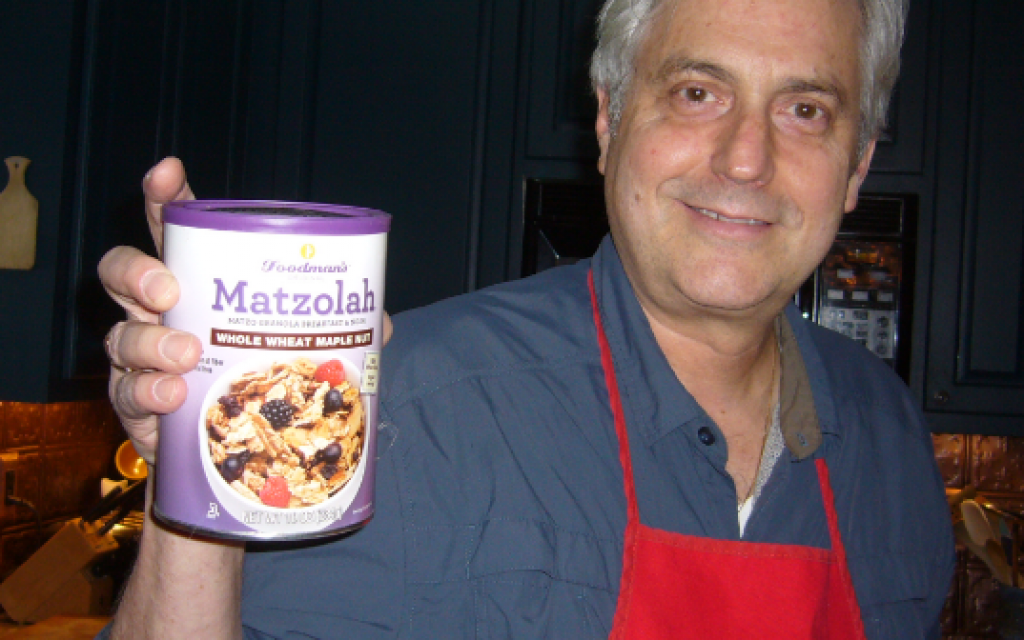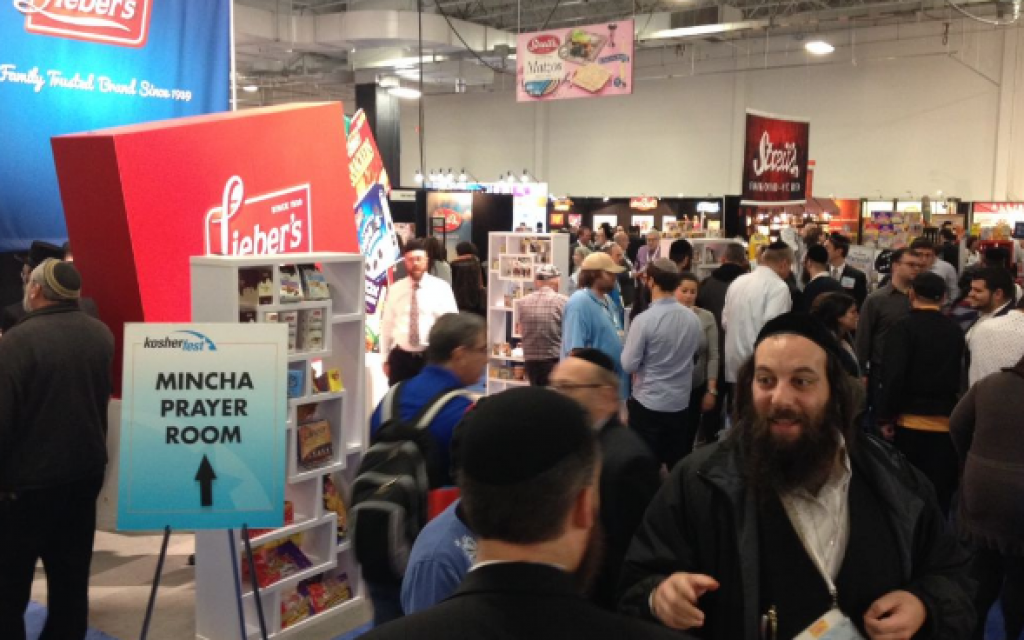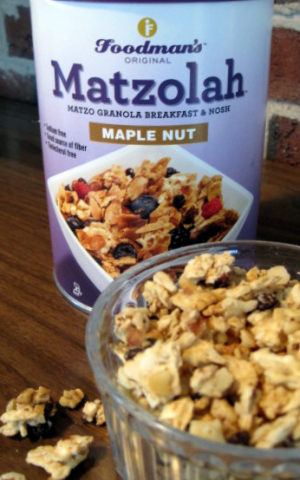Kosher Is Hot Again
62 percent of those who buy kosher food are non-Jews, because they believe kosher means better, healthier and safer.
For years, if you wanted to buy kosher you were mostly limited to a handful of products from familiar family-owned firms such as Manischewitz, Goodman’s and Mrs. Adler’s. But that began to change in the early 1970s when one of the most popular kosher food companies, Hebrew National, started running commercials on national television for its hot dogs featuring Uncle Sam.
In what is now a television classic, that iconic symbol of all things American is caught eating a hot dog containing fillers, additives and meat by-products, not a kosher Hebrew National, which “answers to a higher authority.”
Hebrew National now operates under the Triangle K certification.
Suddenly the laws of kashrut, once known only to observant Jews, became part of a vast industry that today has filled the American supermarket with thousands of products proudly displaying kosher certification.
Current giants of the food business, such as Coca-Cola, General Foods and Kraft Foods have transformed the business of kosher food from the manufacture of products primarily for the Jewish consumer to a marketing tool that appeals to a broad cross section of the American food-buying public.
The Orthodox Union estimates that more than 60 percent of all the items in a modern supermarket are kosher certified by them.
One estimate by Persistence Market Research, a market research firm, has kosher certified products growing at an annual rate of about 12 percent. By 2024 the kosher products business is expected to be worth $60 billion.
“Any of your big companies can’t afford to not have their products have a kosher certification,” said Wayne Silverman, an entrepreneur and one-time kosher innovator who lives in Decatur.

In 2012 he left his job as executive director of the Hillels of Georgia to jump into the kosher food business. His Matzolah, a kosher for Passover substitute for granola, became one of the big hits at Kosherfest, the nation’s largest showcase of kosher foods held each year in New Jersey.
A whole-wheat version was distributed to every Whole Foods supermarket in the country. With the help of Streit’s, the big matzah bakers, Matzolah was in just about every major supermarket chain in America. Some carried it year-round.
“In addition to their matzah bakery on the Lower East Side of Manhattan, Streit’s had a bakery across the Hudson River where they made macaroons for themselves and then they also made Matzolah under the direction of my partner, who was there almost every day. I would fly in and help oversee it as well.”
Seemingly overnight Silverman’s new product became a big kosher success story, with stories in The New York Times, on National Public Radio and even in the Atlanta Jewish Times.
The Streit’s plant, where Matzolah was manufactured, was just one of many certified by the Orthodox Union, which OKs more than a million food chemicals and products as kosher. Its kosher supervisors, or mashgiachs, work in 8,500 plants in more than 100 countries.
China, for example, produces many of the chemicals and additives that go into food with the kosher symbol. More than half of the food products shipped to the U.S. from factories in China are kosher, according to online reports.
When a kosher symbol is affixed to a finished product, whether in cans, bottles or cardboard boxes, like the ones for Matzolah, all the raw materials, including the many flavoring ingredients, must be certified as kosher as well.
“Food production has been globalized. A can of kosher chicken soup might have 23 ingredients made around the world which need kosher supervision,” according to Sue Fishkoff, who wrote “Kosher Nation: Why More and More of America’s Food Answers to a Higher Authority,” a fascinating study of the kosher food industry.

For a product like Matzolah, certified kosher for Passover, all the ingredients had to be kosher for Passover use too. That pushed up the price of everything that went into the product, Silverman said.
“We used maple syrup, for example, but we had to find a maple syrup that would be approved as kosher for Passover, and vanilla extract. Vanilla extract is extremely expensive and it’s a difficult product. But once again the companies that do kosher for Passover vanilla only do their runs once a year because you have to totally clean all your equipment and it has to be supervised for the whole time of that run.”
In a processing plant like the one that International Flavors & Fragrances runs in New Jersey for the food industry, more than 18,000 products that are used there must be certified as kosher.
Kosher certification keeps a small army of kosher religious technicians gainfully employed. At the same time, it has provided most of the budget the Orthodox Union uses to run its programs for children, adults and the many congregations in the movement.
The extra cost of certification can pay off for many large food processors that stock the shelves of the nation’s supermarkets.
The Orthodox Union estimates that a product with a kosher symbol can increase sales by 20 percent over a product that doesn’t have one. Part of the reason is because the food-buying public sees the kosher symbol as a plus.
Timothy Lytton, who teaches product law at Georgia State University’s College of Law in Atlanta, maintains that consumers see kosher food as safe food.

“Many consumers view kosher certification as a proxy for strict food safety standards, a view that kosher certifiers and food companies have embraced.”
Lytton wrote “Kosher: Private Regulation in the Age of Industrial Food,” published in 2013 by the Harvard University Press. He sees kosher food as part of a broader trend in America.
“The growing popularity of kosher food in America is a response to a more general cultural anxiety about industrialization of the food supply. Like the movements to eat organic, local or ethically produced foods, the turn toward kosher is, for many consumers, a way to personalize food production.”
He concludes that kosher standards are also an ideal way to enforce food safety standards.
“In the end,” he writes, “kosher certification is not so much a means to food safety reform, as it is a model for it.”
Which is perhaps why a marketing study by Mintel research firm found that 62 percent of those who buy kosher food are non-Jews, because they believe kosher means better, healthier and safer.
Even among Jews, kashrut has taken on a new luster, particularly, for those who aren’t observant.
Sue Fishkoff’s book on the “Kosher Nation” points out that in the last 25 years there has been renewed interest in Jewish dietary laws. Even Reform Judaism has, as she points out, “been mining these practices for their spiritual potential.”
“Keeping kashrut as a form of moral, spiritual, and ethnic identity is something that is looked up to, rather than looked down upon,” Fishkoff maintains.

But while the success of kosher certification has been hugely rewarding for many food companies, it has created a marketplace where family-owned businesses, like Streit’s, have come under pressure from all the new players in the kosher market.
Sales of Matzolah peaked at 150,000 cans a year before Streit’s decided to get out of the snack food business, which left Silverman and his Matzolah back where he started.
Today he’s working as a fundraiser at Emory University while he looks for an investor in the fast-moving kosher market. He has high hopes that the boom in kashrut will rescue his Matzolah from kosher oblivion.
“I think we could get back into it. You bet.”




comments